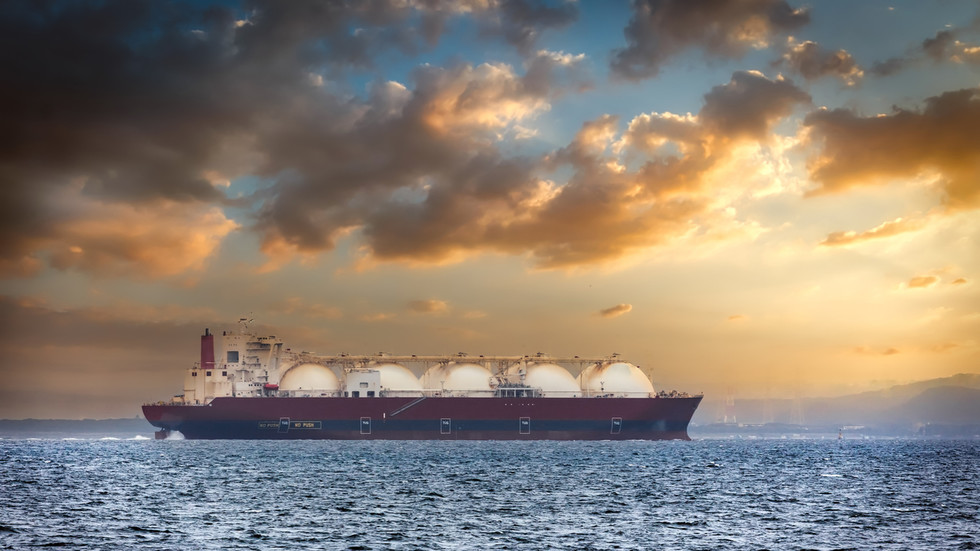Unprecedented Surge: Russian LNG Exports Reach Historic Highs
In a surprising turn of events, Russian LNG exports have achieved a record-breaking milestone, reshaping the global energy landscape. This unprecedented surge in liquefied natural gas (LNG) exports raises pivotal questions about market dynamics and future implications for energy security worldwide. As nations strive to transition to cleaner energy sources, Russia’s newfound prominence in the LNG market presents a complex interplay of geopolitical, economic, and environmental factors that deserve thorough examination.
The Context of Russian LNG Exports
Liquefied natural gas has become a cornerstone of the global energy market, providing a cleaner alternative to coal and oil, and facilitating energy security for many nations. Russia, possessing some of the world’s largest natural gas reserves, has traditionally been a significant player in this sector. However, recent geopolitical tensions, particularly with Europe, have complicated its role.
Despite sanctions and a push for energy independence in Europe, Russian LNG exports have surged. In 2023, statistics indicate that Russian LNG exports increased by over 20% compared to the previous year, reaching an all-time high of approximately 40 million tons. This growth can be attributed to several key factors:
- Increased Demand in Asia: Countries like China, India, and Japan have ramped up their LNG imports due to rising energy needs and a shift towards cleaner fuels.
- Operational Efficiency: Russian companies have improved their LNG production and transportation capabilities, making it easier to meet global demand.
- Strategic Partnerships: Russia has developed strong trade relationships with non-Western nations, ensuring a steady demand for its LNG.
Market Dynamics Shifting
This unprecedented surge in Russian LNG exports is influencing the global energy market in several ways. The dynamics are shifting, and it’s essential to understand how this impacts energy suppliers, consumers, and geopolitics.
Impact on European Energy Security
Europe’s energy landscape has undergone significant changes in recent years, especially following the Russian invasion of Ukraine. Many European countries have sought to reduce their dependency on Russian energy sources, leading to an aggressive push for alternatives, including renewable energy and LNG imports from other regions.
However, the recent increase in Russian LNG exports presents a paradox. While Europe aims to achieve energy independence, Russian LNG is still a viable option for many countries looking to diversify their energy sources. This creates a complex scenario where European nations may find themselves in a balancing act between energy security and political allegiance.
Asian Markets Embrace Russian LNG
As European nations pivot away from Russian energy, Asian markets have stepped in to fill the void. Countries such as China and India are increasingly reliant on LNG imports to fuel their rapid economic growth. The demand for cleaner energy sources in these nations has made Russian LNG an attractive option.
Furthermore, the geopolitical landscape in Asia is evolving. As the United States and its allies focus on curbing Russian influence, countries like China are leveraging this situation to forge stronger ties with Russia. This relationship is likely to solidify Russia’s position in the Asian LNG market, further entrenching its role as a leading supplier.
Environmental Considerations
While the surge in Russian LNG exports presents economic opportunities for suppliers and consumers, it also raises environmental concerns. Natural gas is often touted as a cleaner alternative to coal and oil, but the extraction and transport processes can contribute to greenhouse gas emissions.
Moreover, the increased reliance on LNG, including Russian supplies, may detract from the urgent need to transition to renewable energy sources. Environmentalists argue that continued investment in fossil fuels, even in the form of LNG, could undermine global efforts to combat climate change.
- Emissions from LNG Production: Methane leaks during extraction and transportation can significantly impact the carbon footprint of LNG.
- Policy Implications: Governments must balance energy needs with environmental commitments, leading to potential conflicts in policy-making.
The Future of Russian LNG Exports
Looking ahead, the future of Russian LNG exports will likely depend on several factors, including geopolitical developments, market demand, and environmental policies. Here are some potential scenarios:
- Long-Term Partnerships with Asia: If current trends continue, Russian LNG exports could become increasingly integrated into the Asian energy market, making Russia a key player for decades to come.
- Technological Advancements: Investments in cleaner extraction and transportation technologies may mitigate some environmental concerns, allowing for a more sustainable LNG market.
- Geopolitical Shifts: Changes in the global political landscape could either bolster or hinder Russian LNG exports, depending on evolving alliances and conflicts.
The Role of International Regulations
As the global community grapples with climate change, international regulations surrounding energy production and consumption are likely to evolve. Countries may implement stricter guidelines for LNG production, which could impact Russia’s ability to export at current levels. However, if Russia adapts to these regulations, it may enhance its competitiveness in the global market.
Conclusion: A New Era in LNG Trade
The unprecedented surge in Russian LNG exports signifies a pivotal moment in the global energy landscape. As geopolitical dynamics shift and market demands evolve, countries must navigate the complexities of energy security, environmental responsibilities, and economic opportunities. The implications of this surge reach far beyond Russia, affecting nations worldwide as they seek to balance their energy needs with sustainable practices.
As we move forward, understanding the nuances of this evolving landscape will be crucial for policymakers, businesses, and consumers alike. The future of energy is being shaped today, and the decisions made in response to this historic surge in Russian LNG exports will undoubtedly echo for years to come.
See more Business Focus Insider Team

